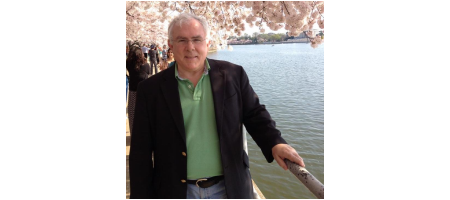I have recently experienced my first grief support group. It was a baptism by fire. The hospice for which I volunteer is a large one. It is the practice of hospices to provide bereavement support to survivors of hospice patients. Leading this support is the bereavement coordinator, a licensed clinical social worker, and a small team of volunteers, of which I am one.
As a matter of policy, each survivor is entitled to a year of bereavement support. Because so many survivors are associated with our hospice, that is a significant workload. Generally, each survivor is contacted routinely by phone by a volunteer to check up on them and offer more personal support if it is wanted. That support is provided by our chaplain or the bereavement coordinator himself. It is my role to minister to the men who are survivors or who are active full-time caregivers.
Our new bereavement coordinator decided we needed to provide support groups periodically. We began our first such group eight weeks ago. I was asked to work with him as a co-facilitator. I spent most of my professional adult life leading discussion groups, but a grief support group was a new experience. I was not only the co-facilitator; I, too, am still grieving. It was a challenge.
On the first day, there were 20 participants, large for a support group, but it showed the pent-up demand for one. Five of the participants were men. I was not optimistic they would readily participate or stay for the duration. I was wrong. They pretty much led the way in the discussions from the first day. All stayed for the duration.
On that first day, it was sad. Everyone filed into the large conference room, lost in their thoughts and grief, several visibly in emotional pain. I was not optimistic as to what the remaining seven weekly meetings might be like. The first two meetings were sad affairs, with many tears. It took some time to get people to open up; each was concerned about breaking down in front of the others. It did not take them long to determine that they were surrounded by fellow travelers who generally cared about them. Empathy was pervasive in the atmosphere. By the third meeting, there were actually some humorous moments, and the group members began to get to know each other and come together as a supportive community.
The last five meetings went exceptionally well, to my delight. People said they felt much better with their new grieving friends in that room. And friendships were indeed forming.
At the last meeting, most attendees hung around for a half hour just talking with one another, all with the same theme: “I’m so glad I came! I feel so much better having been a part of this group.” Phone numbers were exchanged so that people might pair up with a new friend. Before that last meeting, my coordinator and I discussed what was next. We felt that the group members were not ready to part company from each other and wanted to continue to meet. The formal support group had ended, but we were looking at how to make it possible for those who wanted to do so to keep meeting informally. We asked the group members how many would like to do that if we could make the necessary arrangements. Everybody raised their hands and said, Yes!” We wasted no time setting this up. The group leader asked me if I would lead that informal group. I agreed to do so. Helping me in this task is a group member, a man to whom I minister. He, like me, is a retired army colonel. He was a chaplain with lots of certifications and experience in these matters. He is my co-facilitator. We have been working together since last summer and are now good friends. He lost his wife in December after a five-year battle with Alzheimer’s.
Our first informal meeting was scheduled for the same time the following week. That first meeting happened yesterday. It was a great success, as these people now view each other as family and friends. They genuinely enjoy being in the room with each other. We will meet informally for six weeks and then pole the group again to see if they want to continue. We will do so in six-week increments until interest wanes.
We’re fortunate, I know, to be a part of such a terrific, well-organized, caring hospice. This is why things are working so well.
If you have never joined a grief support group, I can’t strongly recommend enough that you find one near you. I have watched a lot of beautiful butterflies emerge from their cocoons over the past two months. They won’t be returning to them. They are experiencing freedom from some of their grief for the first time.
Michael Burroughs is the author of Before Onboarding and Moving Mountains, available on Amazon and other online booksellers. He lives in St Louis, Missouri.
Copyright 2023


Leave a comment